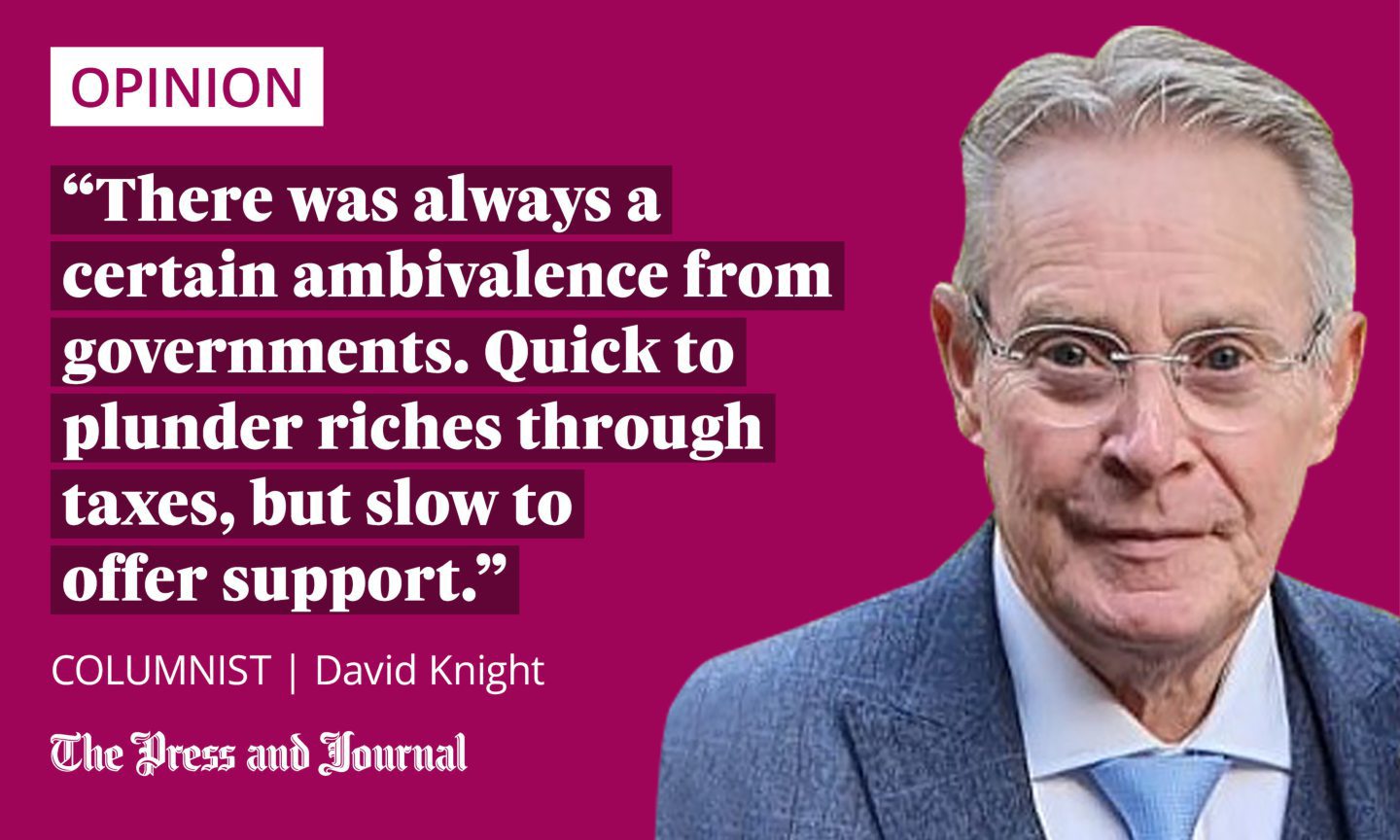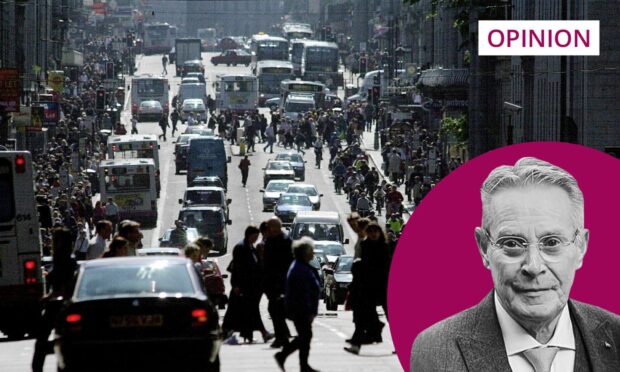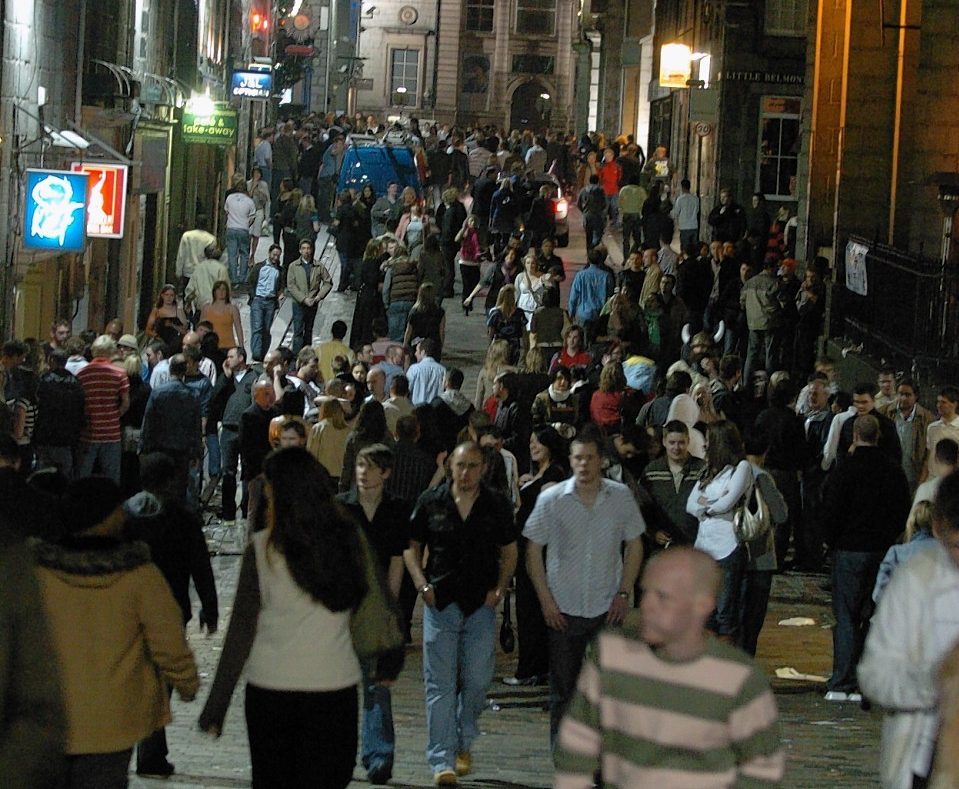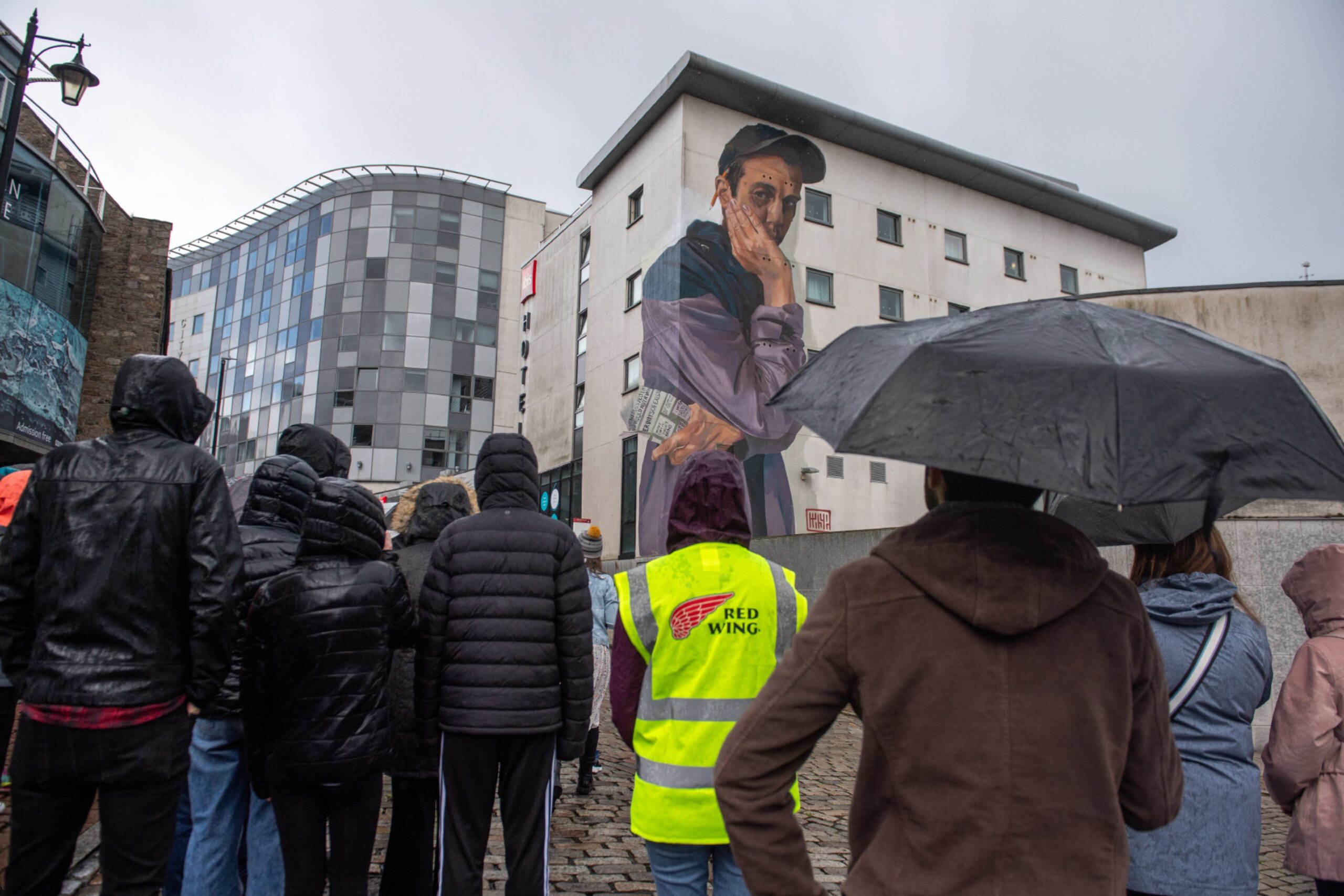A multitude of people have asked me on a regular basis over the past three decades: “Was it oil?”
Anyone in earshot might be mistaken for thinking they were asking about a crossword clue. But, no – they were probing for clues about why my life path led me to Aberdeen all those years ago.
“Was it a job in oil?” they asked, but in a way which sounded as though they knew the answer in advance.
My reply always took them by surprise. “Er, no… Actually, I was offered a job with The P&J,” I would reply.
Mild shock on their faces mirrored my old careers advisor at school after I informed him I dreamed of a career in journalism. I was bucking the trend, as everyone in my class was on a production line heading towards apprenticeships in local car factories.
In journalism, I found my home – at the cutting edge of digging out gems in everyday human life, as opposed to drilling for black gold.
I sometimes thought oil was a more lucrative option, but not when I see the devastation caused by the cold wind of change, driven by the industry downturn, which is now marking its 10th anniversary.
I know a man who started off in food processing, but swapped gravy for oil as the energy industry took off in the north-east. The rest of his working life was far away from Aberdeen, based in the world’s most exotic places for an oil major, while maintaining family roots here for his eventual return.
The energy industry provided him with incredible opportunities and a wonderful lifestyle. Not so wonderful for younger generations drawn to oil when the boom times drained away and the coffers emptied.

A job in oil was always the natural assumption for those who asked what brought me here more than 30 years ago. After all, virtually everyone around here was involved in the industry in some way or another – either employed directly or through supply and service industries.
And then there were legions of independent firms whose prosperity depended on oil: butchers, bakers and candlestick makers. Rich pickings for property owners, too, from converting houses into flats or for multi-occupancy.
More or less everyone had a vested interest in the energy industry retaining plenty of puff – to stay healthy for as long as possible in order to keep the cash rolling. All our livelihoods were clinging to it.
I gulped at house prices and cost of living. “It’s oil,” everyone said with a shrug. If you’ve got it, flaunt it.
So, I lost count of the glittery industry events I attended where money was no object. A celebration of the finest achievements of our world-leading industry in the north-east, with a sprinkling of ostentatious behaviour to impress friends and rivals – and why not?
I remember an old boss driving up and down Union Street when I first arrived to show it off – when it was still special; I think Burberry was there.
I wondered if the grand old street’s shocking neglect and decline was a metaphor for the downturn, but I suspect a disunion caused by the rot in retail set in before then.
When the energy bubble burst, house-for-sale signs littered streets like corpses on a battlefield. People living on the financial edge with big mortgages, cars and holidays went under quickly.
There is still life in the old dog
There was always a certain ambivalence towards the industry by governments. Quick to plunder its riches through taxes, but slow to offer support.
Quick to write it off as a dirty sector with obsolete fields in a race towards net-zero climate targets, but suddenly realising oil and gas were still vital, as energy transition had to be adjusted to realistic levels.
Look at how oil and gas has shot to the top of the Scottish political agenda in the general election
There is still life in the old dog. Look at how it has shot to the top of the Scottish political agenda in the general election; Tories and Labour at each extreme over new production licences, while the SNP backtracks into the middle ground. A sort of “in between” policy over new production, as Kate Forbes put it, but could be more accurately described as a “sixes and sevens” muddle.
I sometimes wonder if strangers to Aberdeen notice any visible signs of its legacy as Europe’s “energy capital” and powerhouse of the UK economy for so many years. Apart from the touching Piper Alpha memorial in Hazlehead Park, the energy exhibitions in the Maritime Museum and the handful of wind turbines just off the coast, that is.
It would be lovely to see a new series of permanent Nuart offshore industry scenes, depicted on major buildings at key entry points to the city – a lasting legacy to make us proud. A celebration in oils, as it were.
David Knight is the long-serving former deputy editor of The Press and Journal



Conversation